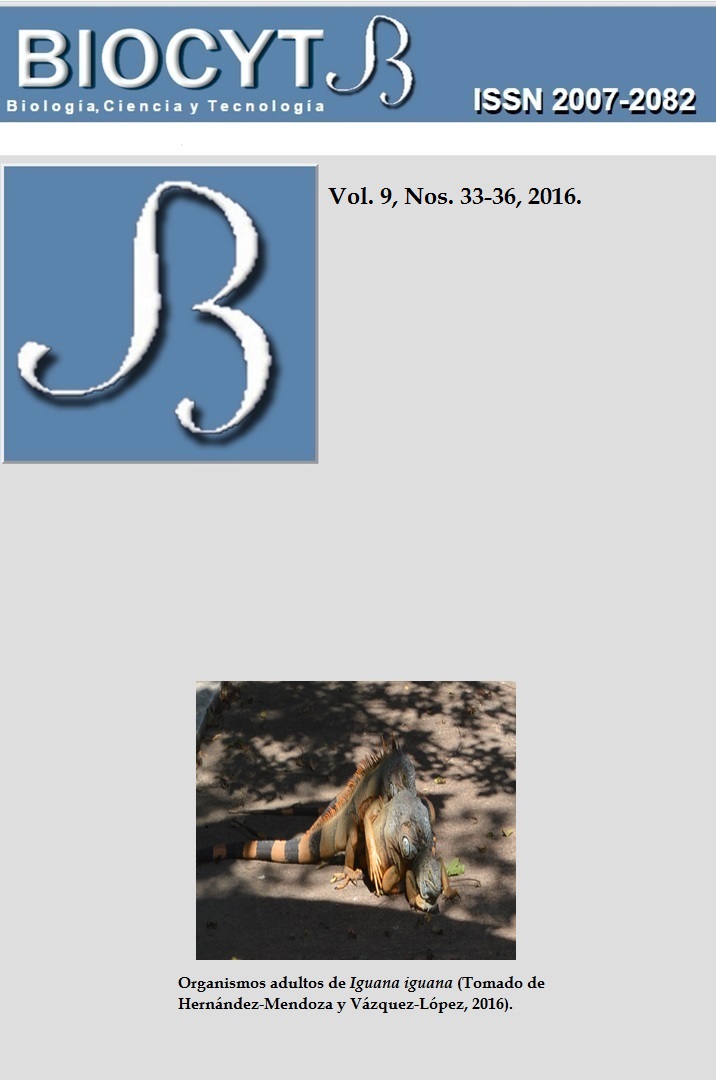FECUNDITY OF CARDISOMA CRASSUM SMITH, 1870 IN AN ESTUARY OF THE MEXICAN PACIFIC
Contenido principal del artículo
Resumen
Fecundity in crustaceans is generally defined as the number of eggs produced by a female during
spawning season in particular and often expressed in terms of body size. Among the brachyuran
there is considerable variation in fertility. This study aimed to estimate fecundity in Cardisoma
crassum Smith, 1870 which is important mangrove ecosystem specie as it helps in the process of
degradation of organic matter produced by the mangrove forest. A total of 17 ovigerous females
were collected, with an average weight of 122.9 ± 32.54 g. The average carapace width was 60.03 ±
7.64 mm and 46.97 ± 4.6 mm in length. The ovigerous mass presented an average weight of 11.78 ±
2.9 g (fresh weight) and 1.612g ± 0.53 g (dry weight). The average number of eggs was 475457.6 ±
117316.8 and 317598.62 ± 116069.60 in fresh and dry weight, respectively. The number of eggs
accounted for C. crassum is in the range of eggs produced by other gecarcinides.
spawning season in particular and often expressed in terms of body size. Among the brachyuran
there is considerable variation in fertility. This study aimed to estimate fecundity in Cardisoma
crassum Smith, 1870 which is important mangrove ecosystem specie as it helps in the process of
degradation of organic matter produced by the mangrove forest. A total of 17 ovigerous females
were collected, with an average weight of 122.9 ± 32.54 g. The average carapace width was 60.03 ±
7.64 mm and 46.97 ± 4.6 mm in length. The ovigerous mass presented an average weight of 11.78 ±
2.9 g (fresh weight) and 1.612g ± 0.53 g (dry weight). The average number of eggs was 475457.6 ±
117316.8 and 317598.62 ± 116069.60 in fresh and dry weight, respectively. The number of eggs
accounted for C. crassum is in the range of eggs produced by other gecarcinides.
Detalles del artículo
Cómo citar
Vargas-Téllez, I., & Vázquez-López, H. (2020). FECUNDITY OF CARDISOMA CRASSUM SMITH, 1870 IN AN ESTUARY OF THE MEXICAN PACIFIC. BIOCYT Biología Ciencia Y Tecnología, 9(33-36). https://doi.org/10.22201/fesi.20072082.2016.9.75912
